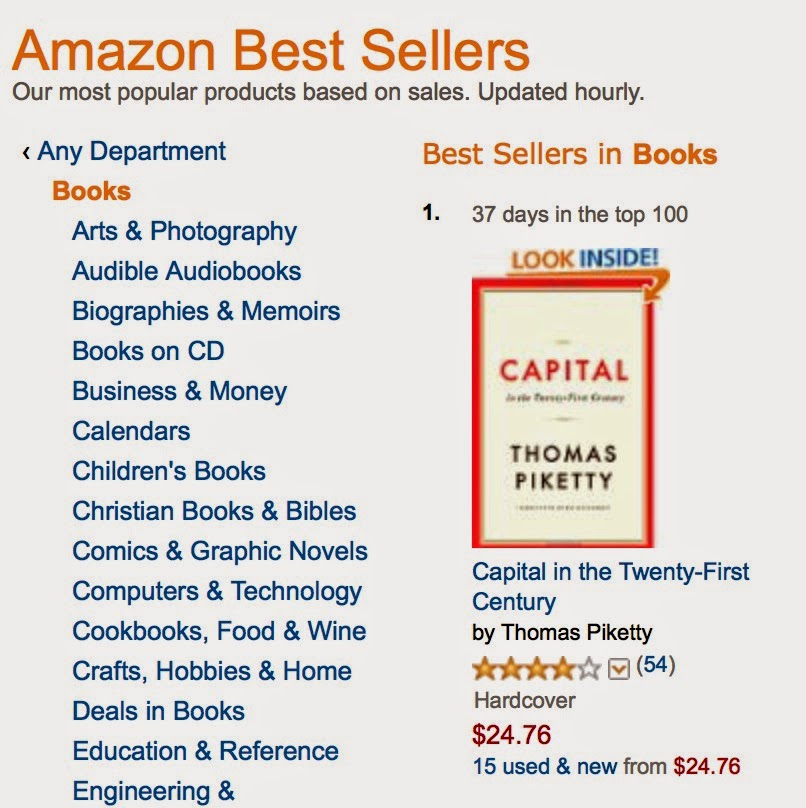Thomas Pikkety’s book “Capital in the 21st. century” seems to be the must-read of the moment. It is central to the raging discussion about in-equality, and amazingly, the current top seller on Amazon.
However,
it is also 700 pages long.
I’ve
only found a few podcasts with Pikkety:
This
is a 50 minute presentation, which give a good introduction to his core
concepts.
This
is a 40 minute video-interview with Huffington Post:
Among
Pikkety’s main points are that the main factor determining the degree of
in-equality is the ratio of income from capital vs. the overall rate of
economic growth in society.
The
larger the returns on capital are, the more those that have wealth already,
will gain relative to those that get their income from wages.
At
the moment, there is confluence of several trends, which are driving
in-equality to levels that are as bad as in the 1920ies:
Financial
services and stock markets are producing an ever-larger share of all the
economic growth – but mainly to those that have the capital to invest. Automation
and advanced technology makes income from capital intense industries more
important, while labour intensive sectors contribute less. Growth in the economy
that is based on wages is stagnant.
Furthermore,
the demographic trend towards a falling population means that inheritance
becomes more important, since the wealth of a person is divided among fewer
children. Also, lower population growth or declining populations causes lower
overall economic growth in society.
Pikkety
believes the polarization will grow further, and he believes that it is
de-stabilizing. He says that some inequality is good, but beyond a certain point,
it’s simply excessive. The solution he proposes is a sharply progressive tax on
property.

